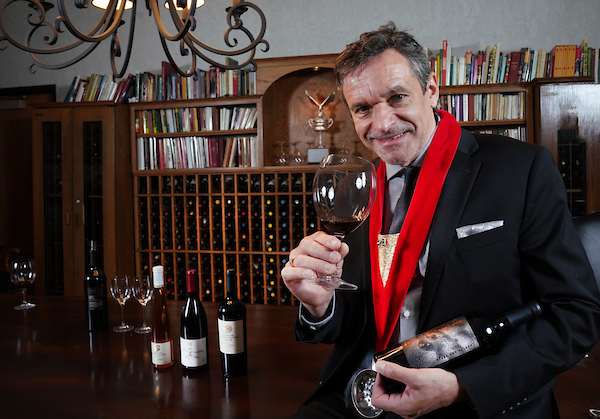Changing students’ views on the wine industry
Since 2005, over 8,000 Purdue students have taken the Wine Appreciation course in the College of Agriculture’s food science department.
What a lot of students don’t realize when signing up for the class, however, is the amount of STEM learning required, said Christian Butzke, professor of food science and Innovation and Entrepreneurship Fellow.
“The learning involves traditional production practices of an agricultural product, culture, history, travel, etiquette, politics, you name it,” explained Butzke, who is a visiting professor this summer at the Catholic University of the Sacred Heart in Piacenza, Italy. “It all gets combined under this umbrella of wine. And because of the breadth of the topics, you also have a breadth of majors who take this class.”
Filling the Class of 1950 Lecture Hall each semester, the course’s popularity continued even when wine tastings couldn’t happen during the majority of the 2020 and 2021 school years.
“A surprisingly low number of students dropped the class despite not being able to taste the wines in,” Butzke said. “This fall we are hoping to go back to the ways we used to hold the class with wine tastings. It’s kind of an incentive, but it’s a really educational part of the class."

Butzke said he often feels the course is a way to teach responsible alcohol consumption to college students as well, emphasizing the traditions of winemaking and its presence in different cultures along with a deep understanding of how the juice from a grape makes its way into a wine bottle on a store shelf.
Opening the window into the over 1,000-year-old tradition of winemaking offers students a better understanding of its importance economically around the world, but also in Indiana.
“Even in Indiana, we have dozens of family wineries that are providing jobs and entertainment to local populations, and this is the same all around the United States,” Butzke said.
Helping students understand the impacts of global warming on the wine industry is also a major issue he focuses on in the course.
“Showing the true consequences of global warming to students is critical,” Butzke said. “I spoke at one of the first conferences on wine and global warming in 2005, and at that time the countries that are furthest south, like Spain, were the first to be concerned about this. And the models they had projected for further distant years, like 2050 and 2100, were suddenly becoming true now.”
Wine is one of the most expensive beverages consumed in the United States, Butzke said, so the climate crisis for the winemaking industry often gets brushed aside as a lavish “want” over a necessity. But Butzke said he hopes what students learn and take away from the course encourages them to find a solution.
“They are the next generation of scientists and engineers,” he said. “So, I hope this class inspires them.”






